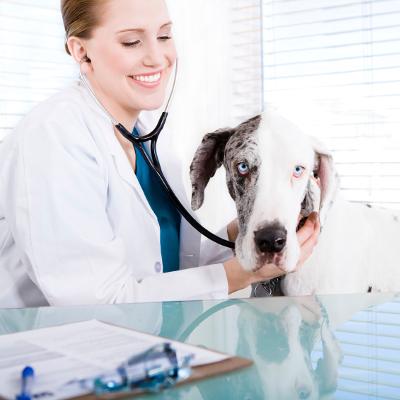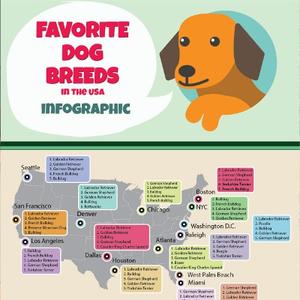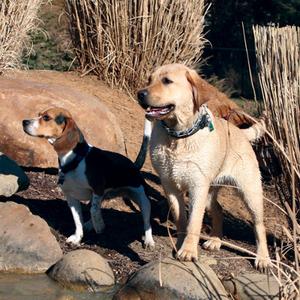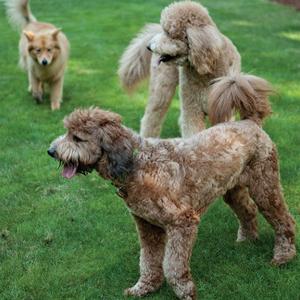 It's hard to find a dog owner who doesn't wonder what breeds lurk in his dog's background. Unless you have a purebred dog who is registered with the American Kennel Club or another breed registry, chances are you aren't sure what breeds make up your dog's history.
It's hard to find a dog owner who doesn't wonder what breeds lurk in his dog's background. Unless you have a purebred dog who is registered with the American Kennel Club or another breed registry, chances are you aren't sure what breeds make up your dog's history.
I was in that same situation with my dog, Candy. I adopted her last fall from my local shelter, where she was listed as a Border Collie mix. But when I saw her, I decided she was part Australian Shepherd. Almost all white with some brown spots on one ear and on her back, Candy clearly had a mottled dog somewhere in her background. Since Australian Shepherds can be mottled, and Candy has a face that reminds me of an Australian Shepherd, I concluded she could be traced back to that breed.
With the idea of proving my theory, I had Candy's DNA tested. A number of companies are offering DNA tests for dogs to help unlock the mystery of their parentage. I decided to take the plunge and see what they had to say about Candy.
Doggie DNA Results
 The results shocked me. According to Mars Veterinary, the company that conducted the test, Candy is part Australian Cattle Dog and part Schipperke. Maybe the merle color comes from an Australian Cattle Dog, but a Schipperke? My white 55-pound dog is closely related to a black 15-pound dog? I can't look at Candy and see any semblance of a Schipperke.
The results shocked me. According to Mars Veterinary, the company that conducted the test, Candy is part Australian Cattle Dog and part Schipperke. Maybe the merle color comes from an Australian Cattle Dog, but a Schipperke? My white 55-pound dog is closely related to a black 15-pound dog? I can't look at Candy and see any semblance of a Schipperke.
But according to the results, Candy's genes reflect a purebred Australian Cattle Dog and a purebred Schipperke somewhere in her genetic past. The proof is in the DNA.
Getting your dog's DNA tested is easy. You order a kit online from any number of companies offering this service, and the kit arrives with instructions on how to take cheek swab from your dog. You then mail the swabs back to the lab and wait for your results to arrive via email.
How DNA Testing Works
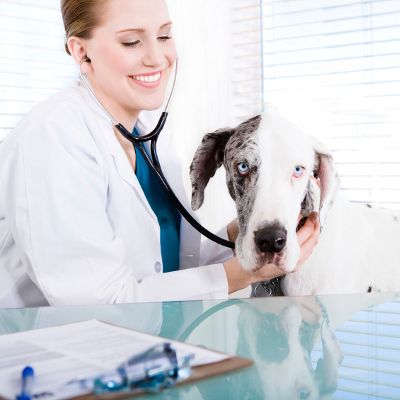 Companies that offer DNA testing for dogs typically provide a detailed report on the results, along with educational information about the personality and behaviors of the dominant breeds found in your dog's background. In the case of Mars Veterinary, technicians also look for the MDR-1 gene, which can cause a dog to metabolize drugs differently than dogs without this gene. Dogs with the MDR-1 gene should be handled with care when receiving anesthesia for surgery or getting medications from a veterinarian. If the MDR-1 gene is detected during a DNA test, the dog's veterinarian should be notified.
Companies that offer DNA testing for dogs typically provide a detailed report on the results, along with educational information about the personality and behaviors of the dominant breeds found in your dog's background. In the case of Mars Veterinary, technicians also look for the MDR-1 gene, which can cause a dog to metabolize drugs differently than dogs without this gene. Dogs with the MDR-1 gene should be handled with care when receiving anesthesia for surgery or getting medications from a veterinarian. If the MDR-1 gene is detected during a DNA test, the dog's veterinarian should be notified.
The Mars Veterinary process of determining a dog's ancestry works like this: DNA is extracted from the cells in the cheek swab and examined for the 321 markers used in the test. The results for these markers are sent to a computer that evaluates them using a program designed to consider all of the pedigree trees that are possible in a dog's last three generations.
The computer uses information from over 200 breeds, types, and varieties from the company's breed database. For each of the millions of combinations of ancestry trees built and considered, the computer gives each a score representing how well that selected combination of breeds matches to the dog's data. The pedigree with the overall best score is the one shown on a dog's ancestry chart. Only breeds that reach the company's set confidence threshold for reporting are reported in the ancestry chart.
Is My Dog Really That Breed?
 The accuracy of canine DNA tests in the area of breed history is disputed by some dog owners, and it's easy to see why. When test results show that your dog is related to breeds that have absolutely no resemblance to him, it can be hard to take them at face value.
The accuracy of canine DNA tests in the area of breed history is disputed by some dog owners, and it's easy to see why. When test results show that your dog is related to breeds that have absolutely no resemblance to him, it can be hard to take them at face value.
However, companies that offer these tests point out that looks can be deceiving. Just because your dog doesn't look like a Golden Retriever doesn't mean he isn't part Golden. The way a dog looks will be determined by the dominant and recessive traits he receives from his parents. These genes can express themselves differently in each individual dog.
If you're wondering why your mixed-breed dog likes to herd the cats or point whenever he sees a pigeon, or you're just curious about his ancestry, consider having his DNA tested. It will cost you less than $100, and the results will give you plenty to talk about with your dog-loving friends.

